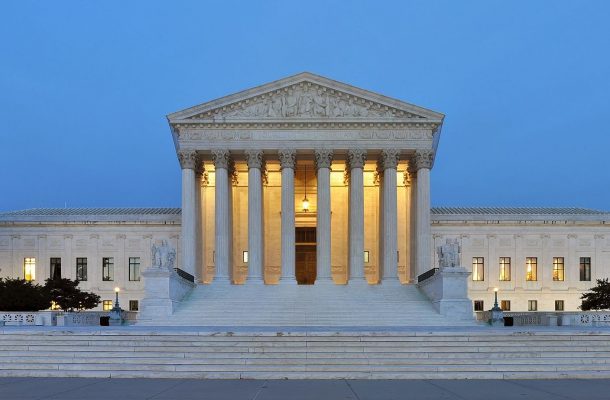Arvanitakis on American politics: The judge, the President and the American public

The Trump Presidency is often – and rightfully – accused of highlighting just how much of democracy is based on accepted conventional behaviours, not legal requirements. We should not forget, however, that Trump was not the first President to go down this path.
Bill Clinton’s behaviour and denial of a relationship with Monica Lewinsky saw him impeached for perjury to a grand jury and obstruction of justice. While legally the then President Clinton did nothing wrong by having an affair, he lied and inappropriately used his position of authority to have relations with a 22-year old intern. If we run a 2020 lens over his behaviour, few, if any, would defend his behaviour even though it was not illegal.
Faced with a hostile Senate, President Obama also defied convention with the number of Executive Orders he introduced. Such actions are the prerogative of the President but again, these actions can easily by identified from a partisan lens as creating a new precedent of unaccepted behaviour.
It is within this context that we need to understand President Trump’s decision to pursue the appointment of a Supreme Court replacement for Ruth Bader Ginsburg. Though the majority of the Americans may disagree with the President’s decision to pursue an appointment prior to the election, we can speculate that President Obama may have taken the same steps if he had control of the Senate.
Who is President Trump appointing?
President Trump has named Judge Amy Coney Barrett as his choice for the opening of the Supreme Court. While appointments usually take months to be vetted and quizzed by members of Congress, Judge Barrett’s appointment can happen quickly because the former law professor has only recently been appointed to a federal appeal court. In other words, vetting is not required.
At 48 years old, Judge Barrett if confirmed, will be the youngest appointee and the sitting justice with the least courtroom experience. While the appointment of a relatively young woman to the Supreme Court is something we should all celebrate, it has raised concerns by progressives and Democrats but seen as a big win for conservative Christians. In fact, Marjorie Dannenfelser, the president of the Susan B. Anthony List, an anti-abortion political group, stated:
“She is the perfect combination of brilliant jurist and a woman who brings the argument to the court that is potentially the contrary to the views of the sitting women justices.”
While there is no doubt that Judge Barrett is a brilliant political mind, the fear expressed by The New York Times that Justice Ginsburg’s replacement “would almost surely plunge the nation into a bitter and divisive debate over the future of abortion rights, made even more pointed because Judge Barrett would replace a justice who was an unequivocal supporter of those rights.”
Judge Barret once clerked for another departed Supreme Court justice: conservative hero Antonin Scalia. Like Scalia, Barrett is a committed Catholic, and if confirmed, would be the current court’s sixth Catholic justice. Interestingly, she is a firm devotee of his Scalia’s favoured interpretation of the Constitution known as originalism.
That is, a concept that involves justices endeavouring to decipher the original meanings of texts in assessing whether someone’s rights have been violated rather than contextualising interpretations in today’s socio-cultural environment. For progressives, this approach is seen as too rigid and doesn’t allow the Constitution’s consequences to adjust.
Interestingly Scalia often surprised many with his interpretations including his decision to join a Supreme Court majority in defending the right of protesters to burn the American flag. This is despite making his own personal feelings very clear:
“If it were up to me, I would put in jail every sandal-wearing, scruffy-bearded weirdo who burns the American flag. But I am not king.”
When Justice Scalia died, both conservatives and progressive paid tribute to him and originalism was embraced by both the left and the right. Those where different times and Judge Barrett’s originalism is now seen as a threat to many liberal causes.
Another Trump strategy
Judge Barrett’s selection is as sure to energise both the President’s political base as well as to galvanise his political foes Republican leaders in the Senate have already said they have the votes to confirm her nomination before the election.
It is an interesting gamble for the President.
It is known that Republicans get much more excited about Supreme Court appointments than Democrats. Strategically then, Trump could have accepted political convention and waited until after the election to make his appointment.
In so doing, Trump could have dangled the judicial appointment to conservative swing voters saying, ‘vote me back and I will give you the supreme court majority’.
In so doing, the Democrats would have had to focus away from their preferred narrative of an ‘out of control’ President who has failed to defend the nation against a global pandemic.
Now the Democrats are trying to excite their base about a process they will lose and scream ‘hypocrisy’ because the Republicans would not accept Obama’s move to appoint a judge in an election year.
All this just highlights that convention is important only when it suits those in power, and hypocrisy an insult by those who are powerless to protect those conventions. And to think we still have 35 more days to the election: we can only guess what will happen next.
Professor James Arvanitakis is the Executive Director of the Australian American Fulbright Commission – one of the world’s most prestigious international education and cultural exchange programs.











Catherine Fritz-Kalish
September 30, 2020 at 10:33 am
Excellent article. Thank you.